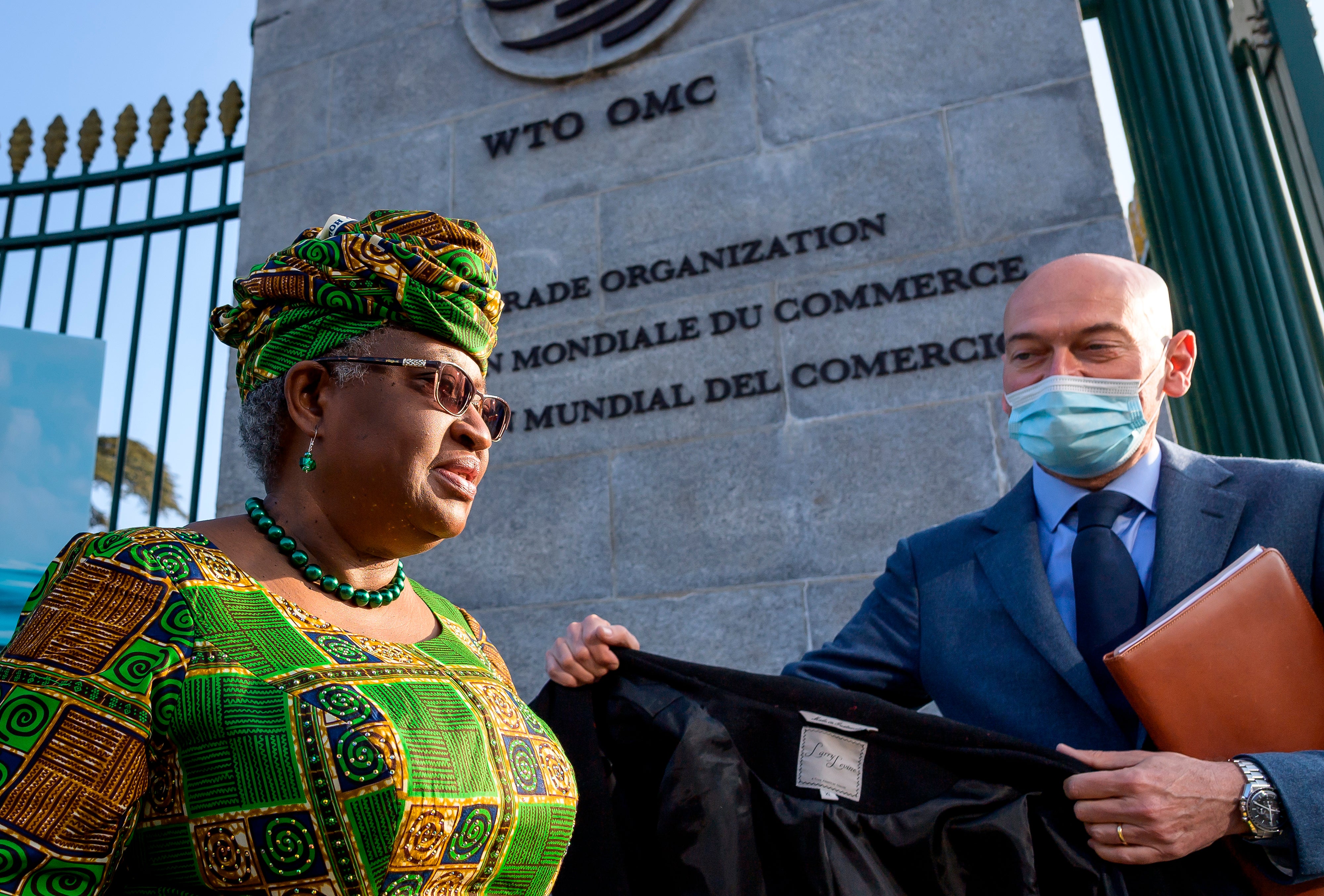WTO: Vaccination lag poses threat to rebounding global trade
World trade will pick up this year but has a long way to go to reach pre-pandemic levels

Your support helps us to tell the story
From reproductive rights to climate change to Big Tech, The Independent is on the ground when the story is developing. Whether it's investigating the financials of Elon Musk's pro-Trump PAC or producing our latest documentary, 'The A Word', which shines a light on the American women fighting for reproductive rights, we know how important it is to parse out the facts from the messaging.
At such a critical moment in US history, we need reporters on the ground. Your donation allows us to keep sending journalists to speak to both sides of the story.
The Independent is trusted by Americans across the entire political spectrum. And unlike many other quality news outlets, we choose not to lock Americans out of our reporting and analysis with paywalls. We believe quality journalism should be available to everyone, paid for by those who can afford it.
Your support makes all the difference.The World Trade Organization is raising its estimate for the rebound in global trade in goods but warning that the COVID-19 pandemic still poses the greatest threat to a recovery that is being hampered by lagging vaccinations, regional disparities and weakness in the service industry.
Demand in North America should be a major factor driving rebounding demand for goods thanks to the large fiscal relief and stimulus spending by the U.S. government.
WTO Director-General Ngozi Okonjo-Iweala called for a better access to vaccines for people in in poorer countries. Rapid development of vaccines have given the world a chance to halt the pandemic, “but this opportunity could be squandered if large numbers of countries and people do not have equal access to vaccines, she said Wednesday.
"A rapid, global and equitable vaccine rollout is the best stimulus that we have,” Okonjo-Iweala said at a news conference presenting the annual trade forecast.
She called for better distribution of vaccine production facilities across the world so poor countries do not have to “stand in line” for vaccines.
“The inequity of access is glaring, and this cannot happen again,” Okonjo-Iweala said.
That the container ship mishap that temporarily shut down freight traffic in the Suez Canal could cause so much disruption was a sign that trade in goods remains “relatively robust,” she said. Meanwhile, services businesses are in more trouble, and the balance of risks are tilted to the downside.
The WTO said it expects merchandise trade to rise by 8.0% in 2021, after having fallen 5.3% in 2020. Trade growth should then slow to 4.0% in 2022, a recovery that will still leave trade below its pre-pandemic level.
The 2020 drop was less than expected due to the robust second half rebound thanks to strong monetary and fiscal support by many governments. The Geneva-based international organization foresaw a slide of 9.2% in its estimate released in October.
“Prospects for a quick recovery in world trade have improved as merchandise trade expanded more rapidly than expected in the second half of last year,” the WTO said in a statement.
“The strong rebound in global trade since the middle of last year has helped soften the blow of the pandemic for people, businesses, and economies,” Okonjo-Iweala said. "But as long as large numbers of people and countries are excluded from sufficient vaccine access, it will stifle growth, and risk reversing the health and economic recovery worldwide."